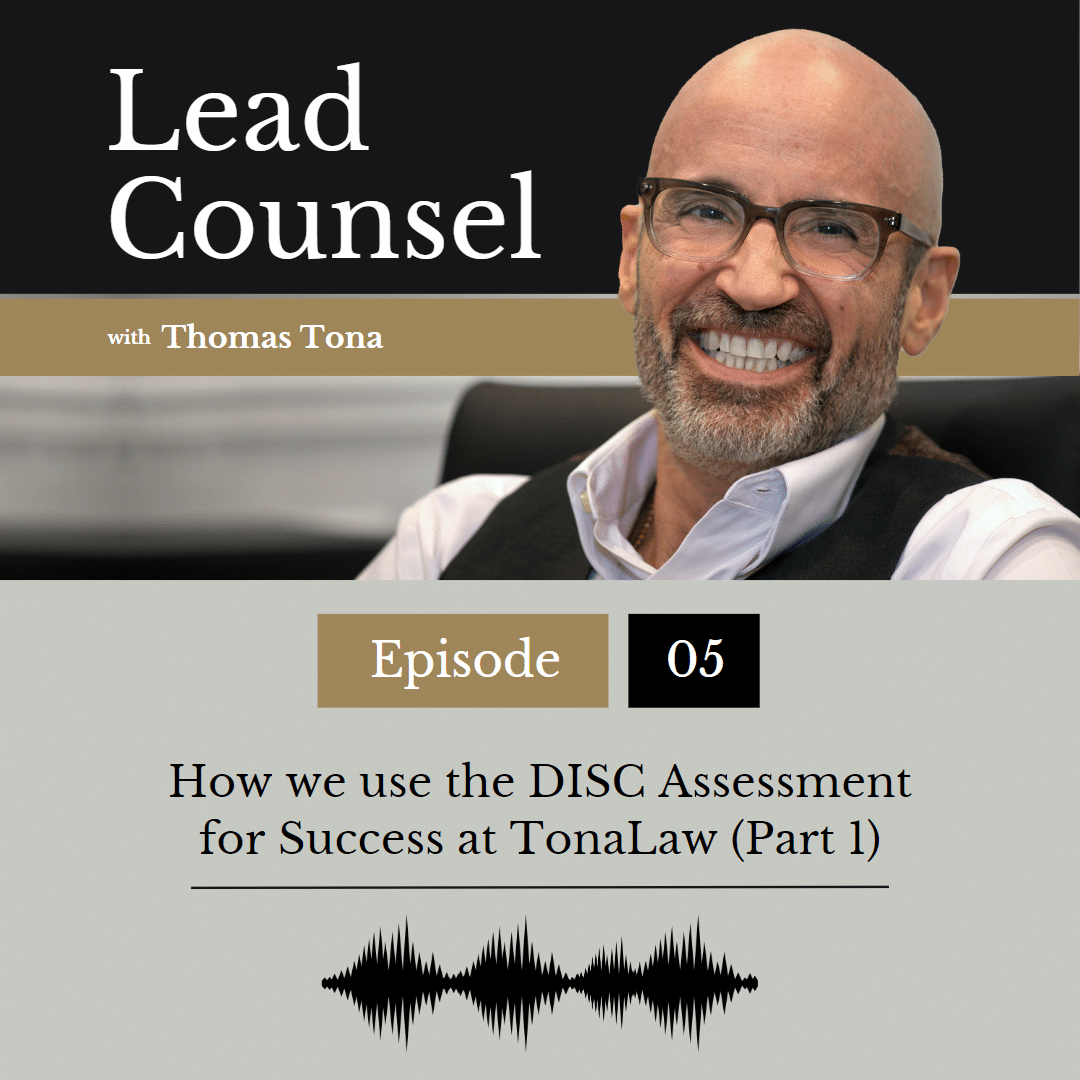The DISC personality test is a tool that we use at The New York Personal Injury & No-fault Collections Law Firm, P.C to help us establish communication and management styles individually. We use it in hiring, developing onboarding, training, and more. It was designed to help you gain insights to build better, stronger, and more fulfilling relationships and is useful in both personal and professional settings.
In this episode, we discuss the DISC assessment and highlight a few differences in communication and management styles for each dimension. Stay tuned for part 2 of this conversation in episode 6!
In this episode, you will hear about:
- What the DISC assessment is, and what the acronym stands for
- The importance of knowing your DISC score in your personal and professional life
- Reading your DISC assessment report
Resources from this Episode:
Take the DISC Personality Test
The New York Personal Injury & No-fault Collections Law Firm, P.C
Follow and Review:
We’d love for you to follow us if you haven’t yet. Click that purple ‘+’ in the top right corner of your Apple Podcasts app. We’d love it even more if you could drop a review or 5-star rating over on Apple Podcasts. Simply select “Ratings and Reviews” and “Write a Review” then a quick line with your favorite part of the episode. It only takes a second and it helps spread the word about the podcast.
The DISC personality test is a tool that we use at The New York Personal Injury & No-fault Collections Law Firm, P.C to help us establish communication and management styles individually. We use it in hiring, developing onboarding, training, and more. It was designed to help you gain insights to build better, stronger, and more fulfilling relationships and is useful in both personal and professional settings.
In episode 5 of the Lead Counsel podcast, we discussed the DISC assessment, and we highlighted a few differences in communication and management styles. Four dimensions of behavior are measured in the DISC assessment. Below is a quick breakdown of the behaviors.
D – People who rate higher on D demonstrate a lot of dominance. They influence steadiness and are driven. They are entrepreneurial risk-takers who are assertive under extreme stress. High Ds thrive in chaos.
I – I stands for “influence.” People who rate higher on I are people-people. They are positive, upbeat, and bring energy to the team. They are optimistic and generally love to talk, almost too much!
S – S stands for “steadiness.” They are known for their stability and being very empathetic. They like to show up to work and know what they are doing that day. People who rate higher on S don’t like change.
C – C is “compliance.” People who rate higher on C are known for having higher attention to detail. They like structure and believe that everybody should follow the rules. They like systems and processes within a business and their own lives.
All the dimensions of the DISC scale are valuable to an organization. You don’t want an organization of all Ds because then it would be pure chaos all the time. You need an even mixture of all dimensions to keep the organization steady and successful. Knowing where everyone lands on the DISC assessment will improve communication styles within the company so everyone is receptive and can perform at their best.
Want to know what your score on the DISC test is? Take the test for free. It takes less than 20 minutes to complete.











